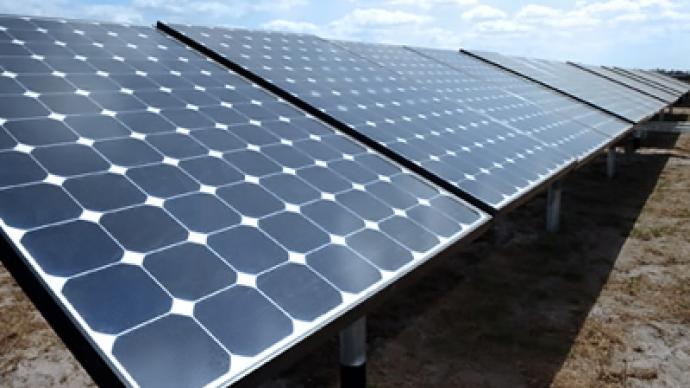Nitol polysilicon production comes on line

Nitol has announced the production of the first large-scale batch of polysilicon from the company’s Irkutsk plant, a year after the first experimental batch for export.
Polycrystalline silicon, also called polysilicon, is a material consisting of small silicon crystals used for electronics and solar cells as well as other microelectronic goods.Nitol polycrystalline production based on chemical production is backed by Rusnano with strategic foreign investors including Eurasian Development Bank and China Solar Energy components industry leader STP. Rusnano guaranteed a Sberbank loan for 9 billion roubles. Nitol Board Chairman, Dmitry Kotenko says planned production will be achieved in stages, with support from State finance and innovation companies. “The factory production capacity is 5000 tonnes per year. The first experimental stage, in 2009, brought the production capacity to 300 tonnes of polysilicon per year. The second stage, expected in mid 2011, will increase the output to 3500 tons per year.The total cost of the project is $600 million. Nitol is the major investor through a loan granted by Rusnano. The country's first large-scale polysilicon production is the result of a great and hard work of the entire team of Nitol specialists with huge background support from Rusnano, Sberbank and the Eurasian Development Bank.” Alexander Korchevskiy, Senior Analyst I2BF Capital Advisors believes the project has great potential.“External market can easily consume the entire amount of polysilicon, produced by the Nitol factory. But the production is more export-oriented. Polysilicon will be produced for the needs of renewable energy sector, notably for solar cells production. The domestic market for this product is small; no significant import substitution is projected. The company is not planning to produce more expensive polysilicon, for the microelectronic industry in the near future. However, the recent production can be an effective base for future high quality production for microelectronic industry.” World demand for Polysilicon for solar cell production has been growing by 25-30% over the last decade according to the European Photovoltaic Industry Association. Gennady Zhuzhlev, Deputy Board Chairman of the Eurasian Bank of Development expects even higher demand in the next five to seven years.“The solar energy as an alternative to oil and gas is supported by the U.S., Germany, Japan, Spain and China on the state level. Nitol – is an element of creating an innovative economy. Cooperation with such companies, in practice, implementing these innovations and the modernization of the Russian economy is a strategic priority for our bank. Work on deepening the economic and financial integration of the Eurasian Economic Community is the mission of the EDB, and in this regard we are pleased to make contributions into the production of a new material which has a strong demand in Russia and CIS countries.” In addition to strong demand on the global market Russian polysilicon production has the economic advantage of low-cost manufacturing, low cost energy and raw materials. Alexander Korchevskiy, Senior Analyst I2BF Capital Advisors says that the location in the Irkutsk region also has advantages.“Irkutsk region’s main advantages for polysilicon production are the cheapest electricity in Russia, the Rusal factory for production of silicon, and the proximity of a major consumer in the China market.The share of electricity costs in the cost structure of polysilicon with traditional technology is about 30-40% – approximately the same as in aluminum production. Moreover, China’s pipeline project for polysilicon production by LDK has been slowed down and Trina Solar decided to hold off on this project and continue its horizontal strategy implementation.”Nitol says the new production facility will support further development of Russian Microelectronics, as well as makes a substantial contribution to the creation of the nascent Russian solar energy industry.












